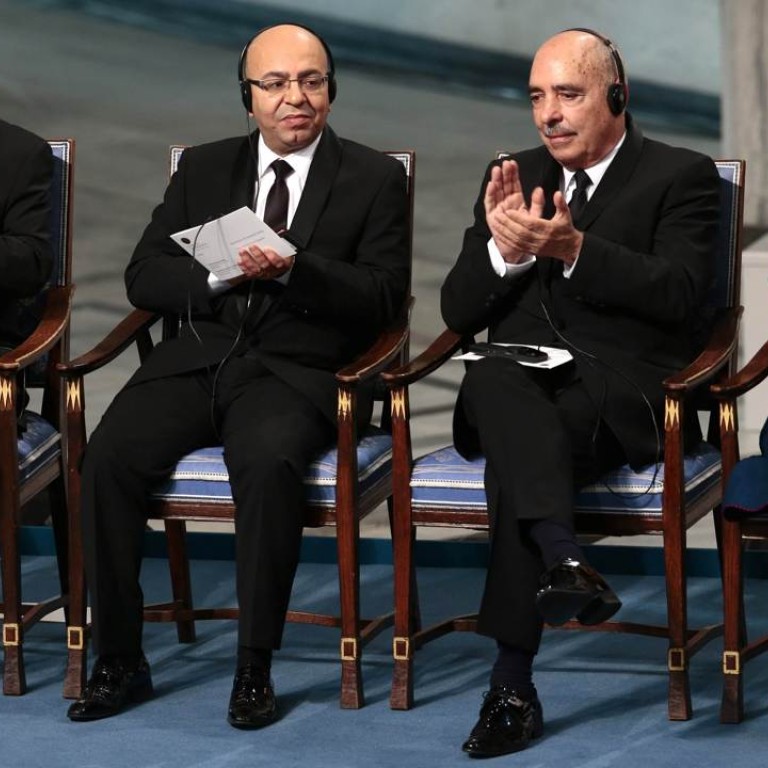
Nobel Peace Prize winner ‘very worried’ about Tunisia’s security crackdown in face of jihadist threat
Abdessatar Ben Moussa, the head of the Tunisian Human Rights League, criticises notion that ‘if there’s terrorism you have to put human rights aside’.
One of the four Tunisian groups awarded this year’s Nobel Peace Prize expressed concern on Thursday over a security crackdown in the fragile democracy as it deals with the threat of jihadist attacks.
“We’re very worried because each time there’s a terrorist act, some voices... say that if there’s terrorism you have to put human rights aside,” Abdessatar Ben Moussa, the head of the Tunisian Human Rights League, said just hours before the award ceremony.
The National Dialogue Quartet is made up of the Human Rights League, the Tunisian General Labour Union (UGTT), the Confederation of Industry, Trade and Handicrafts (UTICA), and the Order of Lawyers.
The quartet was honoured for saving the country’s transition to democracy at a sensitive moment in 2013 when the process was in danger of collapsing because of widespread social unrest.

The group orchestrated a lengthy and thorny “national dialogue” between the Islamists of the Ennahda party and their opponents.
“The best way to fight terrorism is to respect human rights,” Ben Moussa said.
He ruled out a return to an autocratic regime like the one that preceded Tunisia’s revolution in 2010, saying numerous rights were now cemented in the constitution adopted in January 2014.
While the wave of Arab Spring uprisings has led to chaos in neighbouring Libya, Yemen and Syria, and to the return of repression in Egypt, Tunisia has been held up as a success story. But it has also been the victim of three major attacks since the start of the year and is currently under a state of emergency, for the second time in just a few months.
Last week, Amnesty International expressed concern over the subsequent wave of arrests and detentions, saying it was “a troubling sign that the authorities are reverting to repressive and abusive measures”.

.png?itok=arIb17P0)